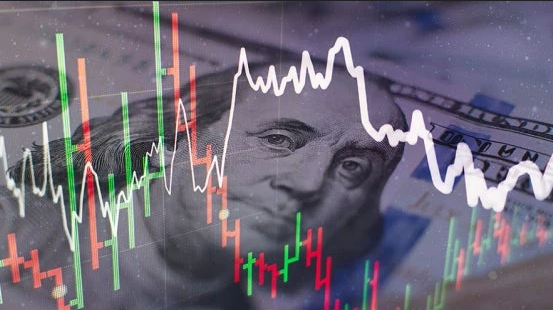A strong dollar under the new presidency of Donald Trump is poised to disrupt returns on emerging market bonds, according to investors, exacerbating an already challenging environment driven by high interest rates in developed economies.
Investors have pulled nearly $5 billion from funds tied to dollar and local currency-denominated emerging market bonds as of mid-November. This year’s total net outflows have surpassed $20 billion, building on a $31 billion withdrawal in 2023 and $90 billion in 2022, as reported by JPMorgan.
The phenomenon, dubbed “Trump trades,” has swept global markets. Expectations of Trump’s policies — including tax cuts and tariffs — are anticipated to fuel inflation, driving both the dollar and U.S. Treasury yields higher.
Impact on Emerging Market Currencies and Bonds
Analysts have warned that U.S. tariffs may harm emerging market currencies by reducing demand for their exports, effectively eroding debt investors’ dollar-denominated returns. Paul McNamara, an emerging market debt manager at GAM, noted, “All of this is going to be negative for emerging markets. I don’t think it is fully in the price.”
Historically, countries such as Mexico, Brazil, and Indonesia have reduced reliance on borrowing in U.S. dollars, thanks to their strengthened economic credibility. However, the evolving market environment has turned earlier bets on rate cuts in these regions into losses. These central banks, which preemptively raised rates to combat global inflation post-pandemic, now face pressure to maintain higher rates for longer to attract capital amid rising U.S. interest rates.

Market Movements Following Trump’s Victory
Since Trump’s election, U.S. 10-year Treasury yields have risen from 4.29% to 4.39%, while 30-year yields climbed from 4.45% to 4.58%. Simultaneously, the dollar has gained more than 4% against a basket of currencies. Emerging market currencies have taken a hit, with South Africa’s rand falling nearly 4% and the Mexican peso and Brazilian real dropping about 2%.
Read more: Supermicro Stock Jumps 12% Friday to Cap Off a Wild Week
Higher U.S. rates make riskier foreign markets less appealing, forcing central banks in emerging markets to adjust their monetary policies. Brazil accelerated its rate hikes, while the South African Reserve Bank adopted a cautious stance, even as it cut rates from a 20-year high. Lesetja Kganyago, the bank’s governor, remarked, “If protectionism worldwide does become inflationary, you would expect that globally, central banks will react.”
“Resignation” Sets the Tone Among Investors
Despite these challenges, the sentiment among investors is one of “resignation” rather than panic, said Gabriel Sterne, head of global emerging markets research at Oxford Economics. “You are in for a stronger dollar, and that puts a brake on emerging market local currency returns.” A JPMorgan index tracking emerging market local currency bond returns has slipped into negative territory, declining roughly 1% this year.
Contrasting Views on the Dollar’s Trajectory
Some argue that Trump’s policy platform could eventually weaken the dollar over time. Karthik Sankaran of the Quincy Institute for Responsible Statecraft observed, “The preferences across fiscal policy, monetary policy, trade policy, and exchange rate outcomes are incompatible with each other.” He pointed to historical precedents where rising U.S. bond yields coincided with a weaker dollar. However, he cautioned that this shift may come too late to alleviate exchange rate pressures in many emerging markets.
Volatility and Emerging Market Policies
Pimco, a major player in emerging market debt, has declared that the era of consistent profits through macro bets on high-yielding nations is over. Emerging market bonds, it argued, should serve primarily as diversification tools rather than high-return investments.
The firm also raised concerns about whether floating exchange rates against the dollar remain viable for emerging economies. Policies like inflation targeting and fiscal rules have long been endorsed by the IMF and emerging market investors, but floating currencies’ effectiveness has come into question. Pramol Dhawan, Pimco’s emerging markets head, remarked, “What worked in the early 2000s has not worked in the last 15 years and will not work again in the future.”
The Road Ahead
The debate over the future of emerging market bonds and currencies highlights the uncertainty surrounding global trade, monetary policy, and the evolving role of the dollar. As markets adjust to Trump-era policies, emerging economies face the dual challenge of navigating domestic growth while mitigating the impact of external pressures.

